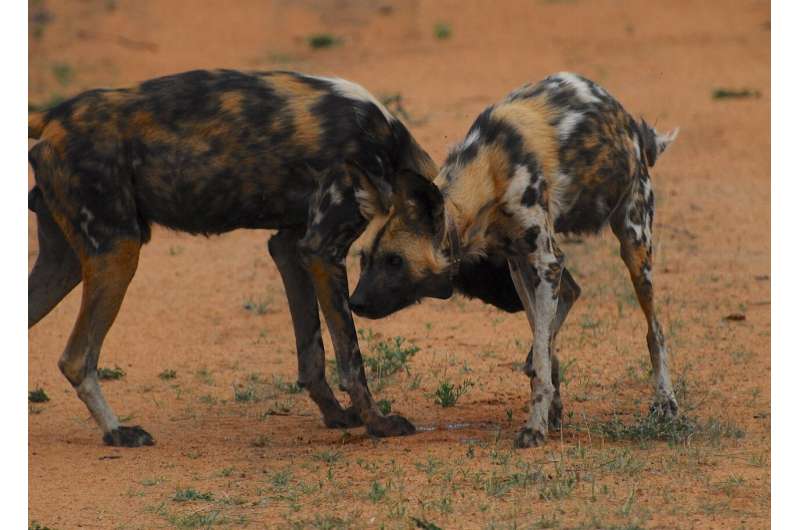August 28, 2023 report
This article has been reviewed according to Science X's editorial process and policies. Editors have highlighted the following attributes while ensuring the content's credibility:
fact-checked
peer-reviewed publication
trusted source
proofread
Study of African wild dogs suggests they may not survive if temperatures increase by 3°C

A pair of zoologists at the Institute of Zoology, Zoological Society of London, working with a colleague at the University of Oxford, has found evidence suggesting that wild dogs living in Kenya are not likely to survive if global temperatures rise by 3°C. In their project, reported in the journal Global Change Biology, Daniella Rabaiotti, Rosie Woodroffe and Tim Coulson conducted a multi-year study of African wild dogs and the ways they react to changes in their environment.
Prior research has suggested that global warming is likely to have some degree of impact on virtually all species globally, and while some might benefit, most are likely to face challenges. In this new effort, the researchers focused their efforts on a single animal—African wild dogs living in Kenya. The researchers have been studying the dogs for more than 16 years to learn more about them as they exist today and the challenges they may face as a result of climate change.
The African wild dog, also known as the painted dog, is a wild species of sub-Saharan canine. Prior research has shown that they face loss of habitat, fragmentation and human-borne diseases. In this new effort, the researchers found evidence suggesting they are likely to face even greater threats from climate change.
High temperatures limit hunting opportunities and also increase the risk of contracting diseases. The researchers also found that higher temperatures lead to fewer pups surviving to adulthood because mothers are not able to find enough food to produce sufficient quantities of milk. The research team also found that adults have a lower survival rate in general during hot spells.
To learn more about how the dogs might fare in a warming world, the researchers used computer modeling—they included factors that impact the ability of the wild dogs to reproduce and survive during hot spells and then ran simulations under various temperature scenarios. The models showed populations drops of approximately 40% under a 1°C temperature increase and complete population collapse at a temperature change 3°C and higher.
More information: Daniella Rabaiotti et al, Climate change is predicted to cause population collapse in a cooperative breeder, Global Change Biology (2023). DOI: 10.1111/gcb.16890
Journal information: Global Change Biology
© 2023 Science X Network



















